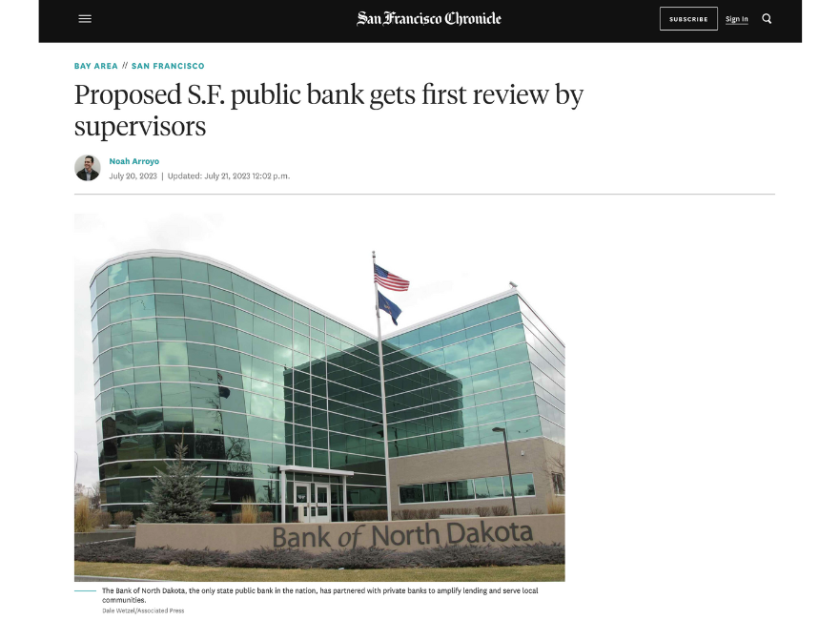Occupy – By Trinity Tran and Chris Roth. Leading the nation on progressive policies is what we do as Angelenos. From setting the boldest mass transit and electric vehicle targets in the nation to divesting the city’s funds from Wells Fargo, Los Angeles is not only the tip of the spear of the West Coast resistance to Donald Trump, but a place where some of the most enlightened measures are emerging to lead our country forward.
Why, then, should the city’s leadership to establish a public bank in Los Angeles be any different?
In his monthly column for the The Los Angeles Times, Harold Meyerson, editor-at-large of the American Prospect, penned an October 3 editorial in support of public banking (“Why Los Angeles should start a public bank”). But in a September 20 piece, the paper’s editorial board widely missed the mark (“Charter Amendment B is one of the most ill-conceived, half-baked ballot measures in years. Vote no”).
Which side should voters believe?
The editorial board came down solidly on behalf of Wall Street, offering a full-throated defense of the Big Bank status quo. But Angelenos are no longer interested in business-as-usual politics. They want to see progressive reforms in the people’s best interest — and creating a city bank run by the people of Los Angeles is the clearest example of that.
First, the problem: Los Angeles taxpayers currently pay Wall Street banks over $200 million in fees and over $1.1 billion in interest every year. The giant banks that extract wealth from Los Angeles — JPMorgan Chase, Wells Fargo, Bank of America, etc. — are the same ones regularly in the headlines (of the Los Angeles Times no less) reaching out-of-court settlements and paying billions in fines for perpetually defrauding the public.
Now comes the solution. Across California, municipalities are seeking to create city-managed public banks to cut ties to Wall Street much like they cut ties to the Trump administration, whether on climate, immigration or other issues. Charter Amendment B, on the ballot for Los Angeles voters in November, is another step in the direction of creating a more self-reliant, locally administered economy.
Continue reading on Occupy.com.




